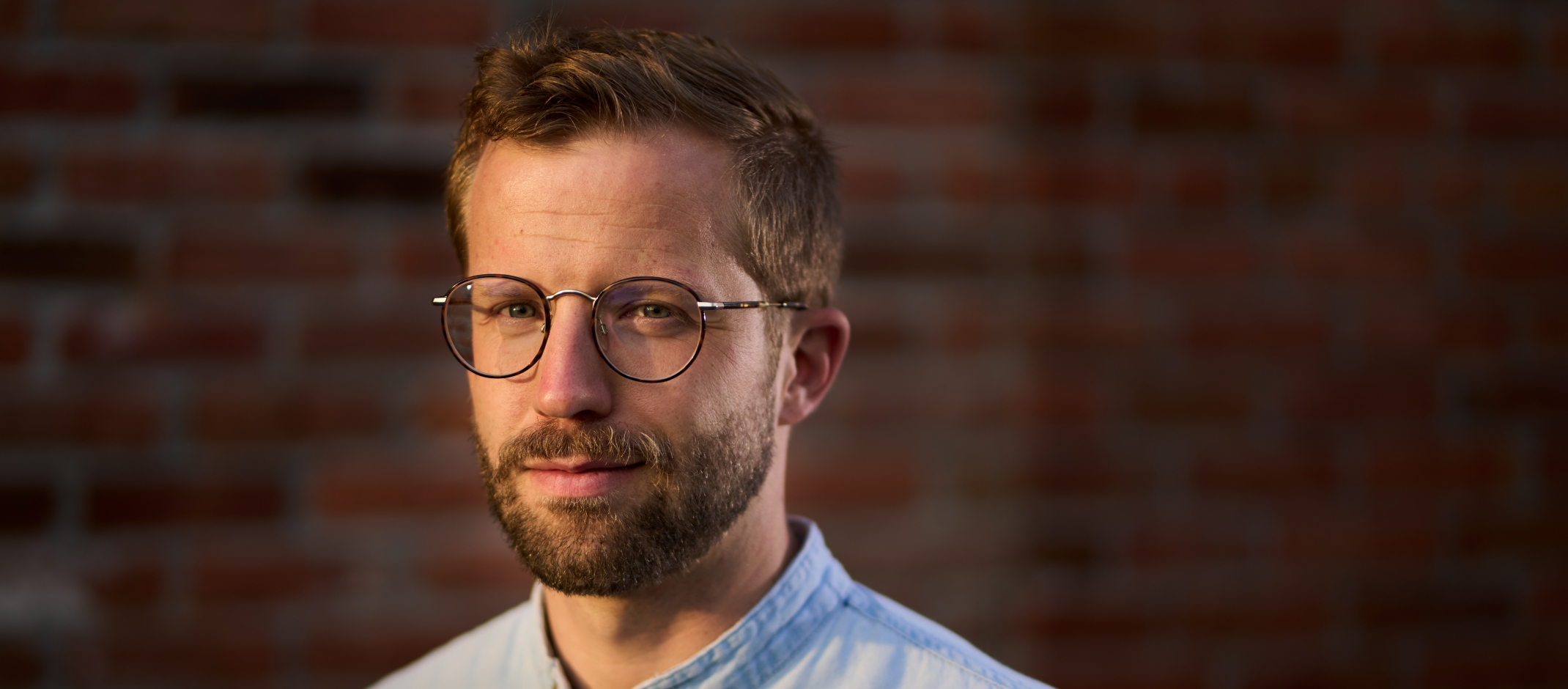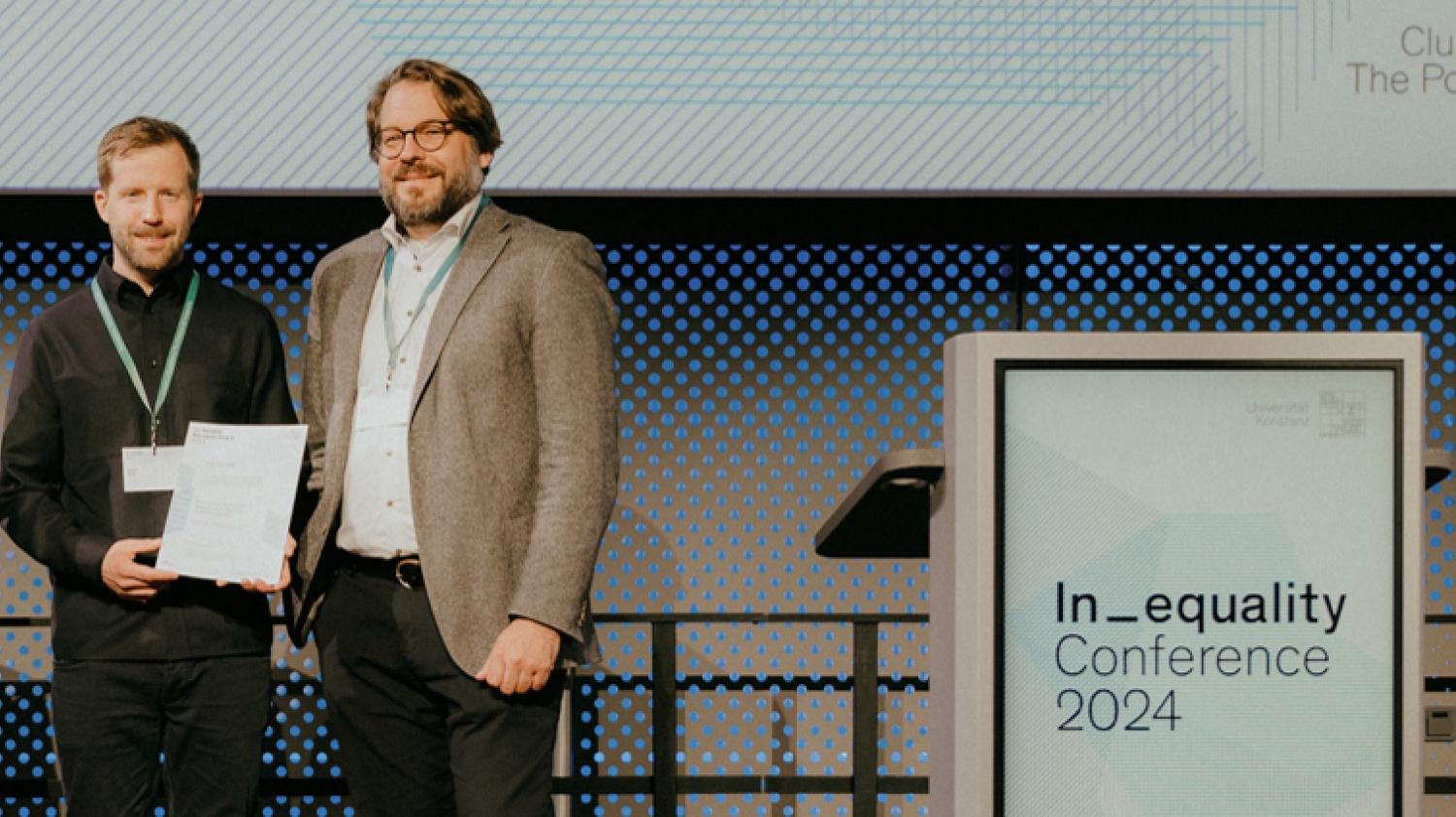Research and politics operate on different logics

The In_equality Research Award is, on the one hand, an award for outstanding academic achievement. On the other hand, we want to recognize researchers with a particular commitment to the transfer of knowledge. From your perspective, why is transfer important and relevant for society?
Simon Jäger: First of all, of course, many social and political issues have a bearing on the labor market. Accordingly, there is heavy demand for economic expertise in this area. At the same time, a great deal of research is now available, and it has improved significantly in recent decades. New data sets and new methods allow us to answer many, although not all, questions in a much more compelling way.
Research-based policy recommendations are much sought after and generate strong added value for society. In a way, that is what taxpayers legitimately expect from science and research, which, after all, is funded by taxpayer money. For researchers and research projects, this means they have a social mandate to contribute to public debates instead of sharing their findings exclusively with an academic audience. They need to ask themselves: Who else might find this interesting?
Where do you see the biggest challenge in this transfer process?
First, it is difficult to describe what research can and cannot do. After all, research findings are never absolute, they’re always conditional, depend on many factors and are subject to certain assumptions. Public debate is less complex and driven by simpler messages. One major challenge, therefore, is to simplify things to the extent that complex connections are made intelligible without distorting the results themselves. The second challenge is:
Research, politics, and societal debates operate on different logics. The goal of research is to produce knowledge: What is the status quo? How does the world work? The logic of politics is a different one: It’s about power and more concerned with normative questions: How should the world be? How do we want to shape it? Of course, the answer to one question does not imply the answer to the other.
Simon Jäger
Hence a certain normative translation is required, in which one’s own value judgments come into play, for example. It’s important to make this transparent. What do we know from science and research? And what do we want to do with this knowledge in society?
Speaking of society, the Year of Science in Germany this year is devoted to “freedom”, and the German constitution, which calls for “equality” before the law, celebrates its 75th anniversary. What do you think: Are freedom and equality mutually exclusive?
Not necessarily. It depends on what we mean by freedom and equality. Economists don’t have a good concept of freedom; curiously, it’s not a category we often use in our thinking. To be sure, “free” markets frequently play a role in our research, but that is a very reductionist concept of freedom. For a long time, I think there was this idea that the best way to organize politics, a society, or a market is to let markets operate freely at first. Then, once market outcomes are available, they should be corrected through ex post redistribution to create more equality.
The In_equality Research Award
The In_equality Research Award honours exceptional research achievements with a large social impact and significant contributions to improving social systems. The aim is to promote courageous research on inequality that simultaneously initiates social change processes. The award is worth 20,000 euros and can be used to fund future research projects, especially in collaboration with the Cluster of Excellence “The Politics of Inequality”.
In 2024, the award was presented to the renowned economist Simon Jäger at the In_equality Conference.
There is a lot of evidence to suggest that this is not necessarily the best way to organize things. For example, minimum wages have not had the devastating effects many would have thought based on a simplified market model. Instead, fewer jobs were displaced, and minimum wages may even have helped to create more jobs. That, of course, is also a freedom trade-off: On the one hand, more economic freedom was created for those at the bottom end of the wage distribution. On the other hand, freedom was restricted for those whose business model is based on concluding employment contracts below the minimum wage level. That’s why I don’t think I can answer the question in such a general way.
As suggested by the name, inequality is the main theme of our cluster. What is your motivation for pursuing inequality research?
I think society can only function if as many people as possible have a direct share in the wealth and success of society and if we design institutions and frameworks in a way to make this possible. That’s my core motivation: to find out what conditions are needed for as many people as possible to contribute to and participate in social prosperity as broadly as possible.
The full interview is available in In_equality magazine no. 7 "In_clusion & Diversity".
Simon Jäger
Simon Jäger is a professor at the Massachusetts Institute of Technology (MIT) whose research focuses on the causes and effects of inequality in the labour market as well as the influence institutions have on social and economic participation. Until the end of 2023, he was CEO of the IZA Institute of Labor Economics. In addition to this, he is currently a research fellow at the National Bureau of Economic Research (NBER) and other leading research institutions. Since February 2024, he has been advising the German Federal Ministry for Economic Affairs and Climate Action (BMWK) led by Robert Habeck.

